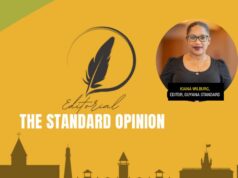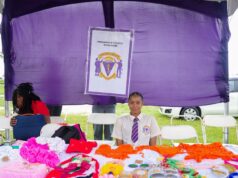In more than 30 countries, Governments have spent trillions of dollars from Natural Resource Funds in ways that remain shrouded in secrecy. This is because many of these Funds, while audited by state agencies, were shielded from independent oversight bodies and auditors.
Interestingly, Guyana’s Green Paper on the establishment of a Natural Resource Fund offers a similar construct. On page 30 of the document, it notes that the Finance Ministry will produce an annual report on the use of the Fund. Agents of the State, which include Bank of Guyana and the Auditor General’s Office, will also produce reports “at least annually.” But there is no provision in the document for external or independent auditors to carry out quarterly inspections and provide the results to the National Assembly. This is in spite of the fact that the International Monetary Fund (IMF) recommended the more secure method since 2016.
Also, several organizations such as the Natural Resource Governance Institute (NRGI) have said that countries without independent auditors have been subject to corruption, wastage, and doctored reports.
NRGI notes that independent oversight bodies have a crucial role to play in monitoring Natural Resource Funds. The Institute said that these agents can raise concerns or identify gaps in good governance standards to help governments implement reforms and manage resource revenues better.
In the case of Ghana, NRGI said that independent auditors and oversight bodies were able to identify gaps in rental payments and receipts from oil companies. Within a few days, NRGI said that Ghana’s Ministry of Energy issued a statement on royalty and rental payment amounts owed in 2011. The country was able to recover US$500M.
Further to this, NRGI said that independent oversight bodies are needed to draw public and international attention to the mismanagement of public funds. In Chad, NRGI said that a multi-stakeholder oversight committee must approve disbursements from the Chad fund. However, a publication of the multi-stakeholders’ 2005 report highlighting wells and schools that were paid for but not completed and inflated costs of computers, not to mention, government efforts to pocket sums of money, was a key factor in convincing the World Bank and the IMF to cut off programmes and suspend help to the country.
NRGI also noted that independent auditors provide a check on the overconcentration of power in the hands of the executive or fund managers. In this regard, NRGI said that without adequate independent oversight, the executive may freely use natural resource fund assets as patronage or may withdraw funds arbitrarily, undermining long-term fiscal sustainability or macroeconomic stability objectives. It said that independent bodies were able to prevent this in the Azerbaijani and Kuwait. (https://resourcegovernance.org/sites/default/files/NRF_RWI_BP_Oversight_EN_fa.pdf)













